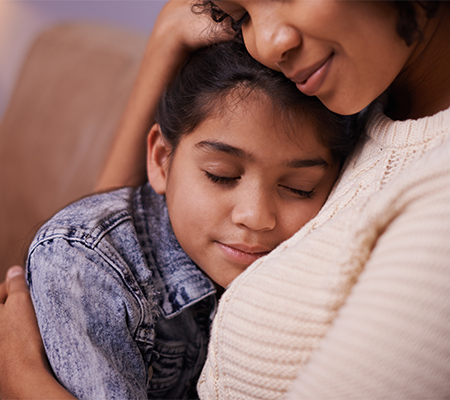 This post has been updated from the original posting date of 12-3-2015.
This post has been updated from the original posting date of 12-3-2015.
An act of terrorism. A horrific natural disaster. Tragedies involving injuries or loss of life.
No matter what it is, when tragedies strike or mass violence occurs – fear, sadness, worry, confusion, and helplessness are natural reactions.
These events may result in concerns and questions for adults, teens and kids. But how do you talk to them about tragic events when you’re scared and don’t have all the answers?
“First, make sure to talk with your child about the incident. Not speaking about it gives the impression that what happened is too terrible to discuss and that you are not open to hearing their thoughts and feelings about the matter,” said Olivia Hamm, LMFT, Organizational Trauma and Resilience therapist with Marshfield Clinic Health System.
Explain tragedies on their level
The younger the child, the simpler the explanation of the tragedy should be.
“Sharing information with children and teens must be done in a developmentally appropriate manner with honest and straightforward language based on the child’s knowledge of the event,” said Myra West, Psy.D., Marshfield Clinic Health System clinical psychologist and Director of Organizational Trauma & Resilience.
It’s likely they have heard different accounts of what has happened from talking with friends or seeing things on social media and the news.
“Limiting media exposure can be helpful for your child. Some pictures and descriptions can be very upsetting and distressing for children and teens. If your child or teen is interested in media coverage, try to look together…reputable articles may be a useful format to control images, content and upsetting exposure,” Hamm said.
You should ask your child what they already know about the incident. Also listen carefully for misinformation or underlying fears or anxieties and help them sort out any inaccurate information they have heard.
Ask school age kids to explain what happened in their words and clear up any misconceptions they have about the event.
Direct teens to reliable sources of information that explain the event in simple terms. You should also prepare to discuss terrorism, freedom, tolerance and politics afterward.
“Encourage your child to ask any questions they may have…and answer them directly. If they ask a question you don’t know, you can look for the answer together or think of possible solutions that would work for your family,” Hamm said.
Remind children of safety measures
Children may be scared mass violence will happen in their school or community after hearing about a tragic event.
“Make sure to let them know you are working to keep them safe and supported,” Hamm said. “You also can share about assistance the victims and their loved ones are receiving.”
Point out to younger kids that police, firefighters and rescue teams respond to the incidents. Let your kids know those professionals are there to help them.
“It is OK to share that sometimes bad things happen. Our focus is ensuring the physical and psychological safety of those we love utilizing various practices. Think of seat belts, smoke detectors, fire drills at school and more. Reassure them of their safety and all of the people working to protect them,” West said.
Tell older children that safety officials learn how to provide better protection by studying the event. Also use statistics to show teens that people can travel and attend events safely.
“Each tragedy supports us all in making improvements to enhance the safety and well-being of children, teens, and our entire society,” said West.
Additional resources and information also are available through the National Child Traumatic Stress Network.

